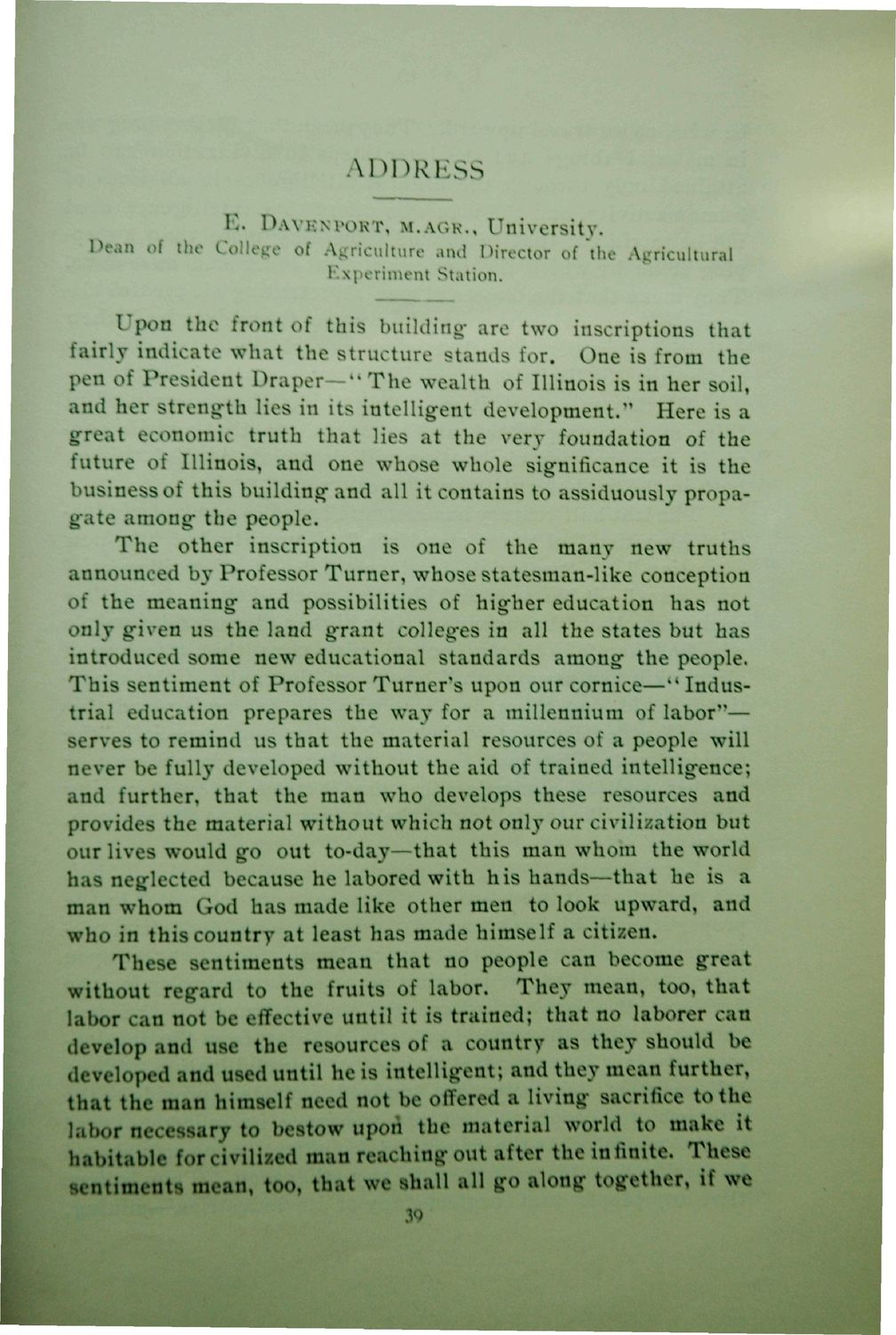| |
| |
Caption: Dedication - Ag Building
This is a reduced-resolution page image for fast online browsing.

EXTRACTED TEXT FROM PAGE:
ADDRESS E. DAVENPORT, M.AGR.. University. Dean of the College of Agriculture and Director of the Agricultural Experiment Station. Upon the front of this building- are two inscriptions that fairly indicate what the structure stands for. One is from the pen of President Draper—44 The wealth of Illinois is in her soil, and her strength lies in its intelligent development," Here is a great economic truth that lies at the very foundation of the future of Illinois, and one whose whole significance it is the business of this building and all it contains to assiduously propagate among the people. The other inscription is one of the many new truths announced by Professor Turner, whose statesman-like conception of the meaning and possibilities of higher education has not only given us the land grant colleges in all the states but has introduced some new educational standards among the people. This sentiment of Professor Turner's upon our cornice—44 Industrial education prepares the way for a millennium of labor"— serves to remind us that the material resources of a people will never be fully developed without the aid of trained intelligence; and further, that the man who develops these resources and provides the material without which not only our civilisation but our lives would go out to-day—that this man whom the world has neglected because he labored with his hands—that he is a man whom God has made like other men to look upward, and who in this country at least has made himself a citizen. These sentiments mean that no people can become great without regard to the fruits of labor. They mean, too, that labor can not be effective until it is trained; that no laborer can develop and use the resources of a country as they should be developed and used until he is intelligent; and they mean further, that the man himself need not be offered a living sacrifice to the labor necessary to bestow upon the material world to make it habitable for civilized man reaching out after the in finite. These sentiments mean, too, that we shall all go along together, if we 39
| |